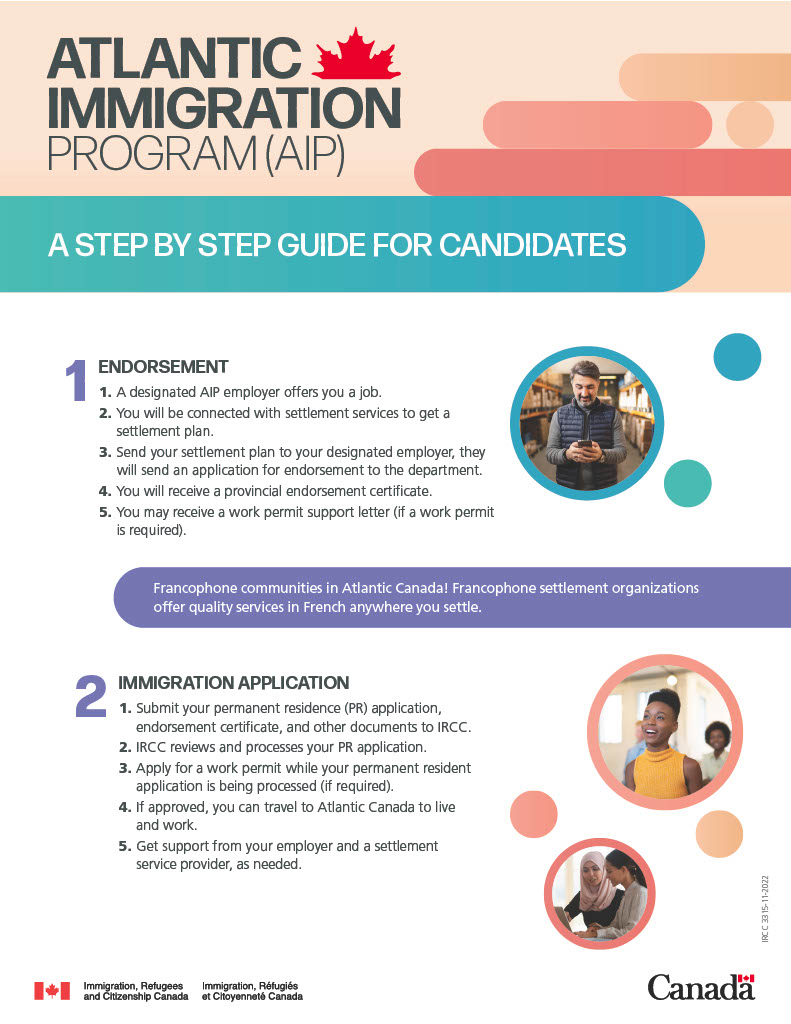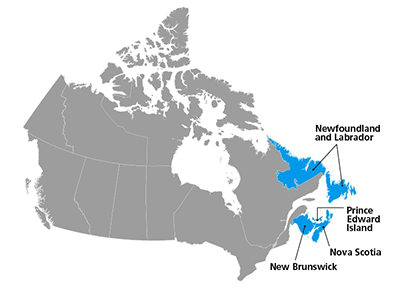Immigrate through the Atlantic Immigration Program
Processing times
We couldn’t load the data. Try again.
This processing time doesn’t include the time you need to give biometrics.
Fees
From: Error loading fee. Check the fee list.
The Atlantic Immigration Program (AIP) is a pathway to permanent residence for skilled foreign workers and international graduates who want to work and live in 1 of Canada’s 4 Atlantic provinces.
This is an employer-driven program designed to help employers in Atlantic Canada hire qualified candidates for jobs they have been unable to fill locally. You must receive a job offer from a designated employer in Atlantic Canada to participate in the program.
To immigrate to Atlantic Canada through this program, you must be either
- a recent graduate of a recognized post-secondary institution in Atlantic Canada, or
- a skilled worker
You can be living abroad or already be in Canada as a temporary resident.
Step-by-step guide for AIP candidates
There are a few steps to take to immigrate to Canada through the AIP. Review the infographic below for an overview of how this program works.
Application process at a glance
AIP guide for candidates (PDF, 271 KB)

Text version: A step-by-step guide for AIP candidates
Endorsement
- A designated AIP employer offers you a job.
- You will be connected with settlement services to get a settlement plan.
- Send your settlement plan to your designated employer, they will send an application for endorsement to the department.
- You will receive a provincial endorsement certificate.
- You may receive a work permit support letter (if a work permit is required).
Immigration Application
- Submit your permanent residence (PR) application, endorsement certificate, and other documents to IRCC.
- IRCC reviews and processes your PR application.
- Apply for a work permit while your permanent resident application is being processed (if required).
- If approved, you can travel to Atlantic Canada to live and work.
- Get support from your employer and a settlement service provider, as needed.
